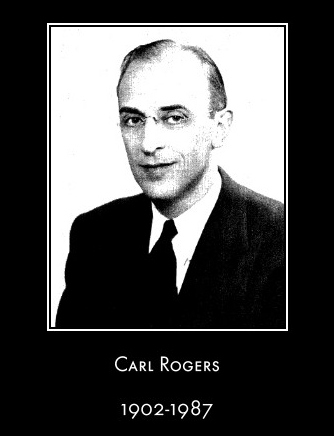
KEY CONCEPTS OF PERSON-CENTERED THERAPY

Therapeutic Relationship - The therapist’s task is to help the client activate this inherent tendency for self-enhancement.
· Rooted in that belief, person-centered approach views individuals as experts in what is the best possible answer or solution to their problems.
· As the client are the ones that have the best potential to solve their own issues, person-centered therapists do not use any specific techniques or directives in their sessions.
· The counselor works on developing a trusting therapeutic relationship, which is considered to be a necessary and sufficient factor for change to occur. Within that frame, person-centered therapists use themselves as instruments in the process, displaying accurate empathy, unconditional positive regard and genuineness (congruence). (Rogers 2005)
The Core Conditions
The three main core conditions that Carl Rogers considered essential for effective counseling are:
1. Unconditional Positive Regard (UPR)
2. Empathy
3. Congruence
However in Roger’s paper “The necessary and sufficient conditions of Therapeutic personality change” he lists six conditions in total.

1. Two persons are in Psychological contact.
2. The first, whom we shall term the client, is in a state of incongruence, being vulnerable or anxious.
3. The second person, whom we shall term the therapist is congruence or integrated in the relationship.
4. The therapist experiences unconditional positive regard for the client.
5. The therapist experiences an empathic understanding of the clients internal frame of reference and endeavors to communicate this experience to the client.
6. The communication to the client of the therapist’s empathic understanding and unconditional positive regard is to a minimal degree achieved. …(Rogers 2005)
No other conditions are necessary. If these six conditions exist and continue over a period of time, this is sufficient…(Rogers 2005)
Therapeutic Techniques


One of the ways in which personal growth can be enhanced is through the use of expressive arts. According to Rogers’ daughter Natalie, art provides the client with an opportunity to get to the deep feelings and experiences that might be otherwise inaccessible. Creative expression can be encouraged in many different forms and through variety of mediums such as movement, painting, sculpting, music and writing. All of those methods increase the spontaneous creative expression, which further facilitates growth, healing and self-discovery. (Rogers 2005)
Therapeutic Goals
The person-centered approach aims toward the client achieving a greater degree of independence and integration. Its focus is on the person, not on the person’s presenting problem. Rogers did not believe the aim of therapy was to solve problems. Rather it was to assist clients in their growth process so clients could better cope with their current and future problems. (Corey, 2009)
A person-centered therapist encourages clients to give up the masks and facades that were created through the process of socialization and caused them to loose contact with their true selves. It is up to the therapist to create that climate of safety, which enables the clients to open to the experience, trust in themselves, and develop an internal source of evaluation and willingness to continue growing.

(n.d.). Retrieved from: https://share.ehs.uen.org/sites/default/files/images/7%20psychotherapy%20cartoon.jpg
Rogers, C. (2005). The Carl Rogers Reader edited by Kirschenbaum & Henderson. London: Counstable & Robertson
Corey, G. (2009). Theory and Practice of Counseling and Psychotherapy, Eighth Edition. Belmont, CA: Brooks/Cole, Cengage Learning.
(n.d.). Retrieved from: http://www.all-about-psychology.com/images/carl-rogers-picture.jpg






